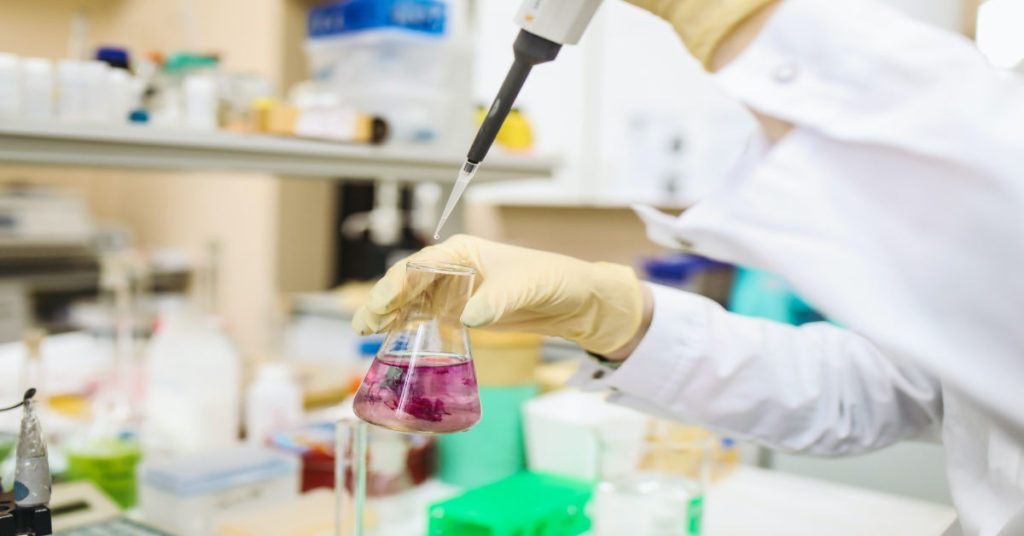If you’re looking to become a pharmaceutical scientist, it’s important to be prepared for your job interview. To help you out, we’ve put together a list of five common questions that may come up.
These questions are designed to test your skills and see if you’re a good fit for the job.
By practicing your answers beforehand, you’ll be able to go into the interview feeling confident and increase your chances of landing the job. So let’s get started!
Common Pharmaceutical Scientist Interview Questions and Answers
1. Can you provide an overview of your educational background and relevant degrees in pharmaceutical science or a related field?
When responding to this question, be concise and emphasize relevant degrees, certifications, and coursework in pharmaceutical science.
Highlight any specialized training or research experiences that directly relate to the position.
Keep the focus on qualifications that make you a strong candidate for the role.
Example answer:
I hold a [mention relevant degree, e.g., Master’s in Pharmaceutical Science] from [name of institution], with focused coursework in [mention relevant subjects, e.g., drug development, pharmaceutical analysis].
My education equips me with the knowledge and skills vital for success in pharmaceutical science roles.
See also: Why Do You Want to Be a Clinical Research Coordinator?
2. Describe your experience in pharmaceutical research and development. What projects have you worked on, and what was your role in them?
When answering this question, emphasize your relevant projects, specifying your role, responsibilities, and contributions.
Highlight any publications, patents, or significant findings.
Showcase your problem-solving skills, ability to work collaboratively, and how your experience aligns with the prospective employer’s needs and objectives.
Example answer:
I’ve been involved in pharmaceutical R&D, contributing to projects such as [mention specific projects].
In these roles, my responsibilities included [mention your roles and contributions, e.g., experimental design, data analysis, formulation development].
I’ve also collaborated with cross-functional teams to drive innovation and achieve project objectives.
See also: Why Do You Want To Be A Clinical Research Associate
3. How do you stay current with the latest advancements and trends in pharmaceutical science and technology?
When answering, emphasize your commitment to continuous learning.
Mention subscriptions to scientific journals, conference attendance, webinars, and professional organization membership.
Highlight your ability to apply newfound knowledge to improve research and development processes and stay at the forefront of the field.
Example answer:
I stay current by regularly reading peer-reviewed journals, attending industry conferences, and participating in webinars and workshops.
Membership in professional organizations allows me to network and access cutting-edge information.
I apply this knowledge to enhance our research and development strategies, ensuring our projects align with industry trends.
See also: Hospital Pharmacy Technician Interview Questions
4. Can you discuss a challenging problem you encountered in your previous research? How did you approach and solve it?
Choose a specific, relevant problem, emphasizing your problem-solving skills when responding.
Describe the situation, your analysis, and your actions to resolve it.
Highlight teamwork, innovation, and any positive outcomes or lessons learned from overcoming the challenge.
Example answer:
I encountered a complex issue involving [briefly describe the problem].
To address it, I conducted a thorough literature review, collaborated with colleagues to brainstorm solutions, and designed a series of experiments.
After several iterations, we successfully resolved the problem, achieving [mention positive outcome or impact]. This experience reinforced my problem-solving abilities and teamwork skills.
See also: Oncology Medical Assistant Interview Questions
5. What laboratory techniques and equipment are you proficient in, and how have you applied them in your research?
Highlight your proficiency in relevant laboratory techniques and equipment, including any specialized tools or instruments.
Provide examples of how you’ve applied them in your research, showcasing your hands-on experience and how your skills have contributed to the success of projects or experiments.
Example answer:
I’m proficient in various laboratory techniques, including [list specific techniques], and skilled in operating advanced equipment such as [mention equipment].
For instance, I utilized [mention a technique/equipment] to [briefly describe its application in a specific research project], ultimately leading to [mention a positive outcome or insight].
See also: Clinical Research Manager Interview Questions
Pharmaceutical Scientist Interview Questions and Answers PDF
Download our comprehensive PDF guide featuring expertly crafted pharmaceutical scientist interview questions and model answers.
Gain the confidence and knowledge you need to excel in your upcoming job interviews.
Don’t miss out – get your PDF now and embark on your path to career success!
Conclusion: Interview Questions for Pharmaceutical Scientist
If you’re going for an interview as a pharmaceutical scientist, you want to be prepared.
You should be ready to answer some key questions to show off your skills and experience.
Make sure you think through your responses so you can stand out and show how passionate you are about advancing pharmaceutical research.
Remember, each question is a chance to shine and impress your interviewer.
Good luck with your interview!
Related articles of ours:
